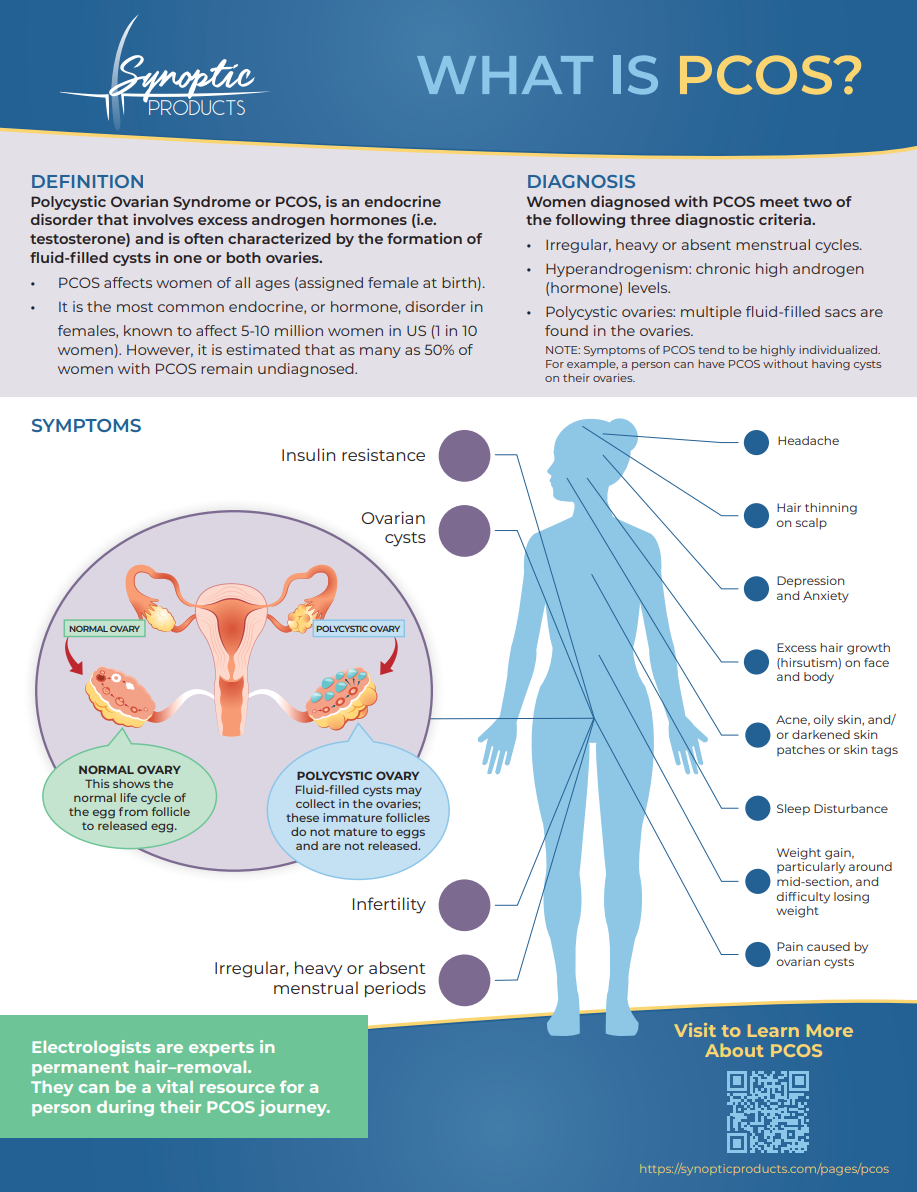PCOS
Polycystic Ovary Syndrome
PCOS
Symptoms to watch for
Primary Symptoms
- Insulin resistance
- Ovarian cysts
- Infertility
- Irregular, heavy or absent menstrual periods
Additional Symptoms
- Headache
- Hair thinning on scalp
- Depression and anxiety
- Excess hair growth (hirsutism) on face and body
- Acne, oily skin, and/or darkened skin patches or skin tags
- Sleep disturbances
- Weight gain, particularly around mid-section, and difficulty losing weight
- Pain caused by ovarian cysts
Definition
Polycystic Ovary Syndrome, aka Polycystic Ovarian Syndrome or PCOS, is an endocrine disorder that involves excess androgen (testosterone) hormones and is often characterized by the formation of fluid-filled cysts in one or both ovaries.
- PCOS affects persons assigned female at birth of all ages.
- It is the most common endocrine, or hormone, disorder in females, known to affect 5 -10 million women in US (1 in 10 women). However, it is estimated that as many as 50% of women with PCOS remain undiagnosed.
Diagnosis
Women diagnosed with PCOS meet two of the following three diagnostic criteria.
- Irregular, heavy or absent menstrual cycles
- Hyperandrogenism: chronic high androgen (hormone) levels
- Polycystic ovaries: multiple fluid-filled sacs are found in the ovaries
NOTE: Symptoms of PCOS tend to be highly individualized. For example, a person can have PCOS without having cysts on their ovaries.
Electrology
As a hair and skincare professional, your electrologist can be a partner in your PCOS journey.
- Electrolysis treatments provide permanent hair removal to address excessive hair growth (hirsutism) as well as healing for ingrown hairs that may have resulted from previously used temporary hair removal techniques, such as shaving, sugaring and depilatory creams.
- In addition, anecdotal evidence suggests that the mechanism of electrolysis can positively impact acne and oily skin, improving the overall appearance of client’s skin.


